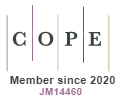Significant learning in the contexto of remote teaching
DOI:
https://doi.org/10.5585/dialogia.n36.17760Keywords:
Information and Communication Technology, Meaningful learning, Remote TeachingAbstract
This paper registers part of a professional Master's research entitled "Communication and information technologies as a motivational factor for elementary education". The studies were then expanded on meaningful learning considering the context of remote education with the adoption of the suspension of face-to-face classes due to the pandemic of COVID-19. It presents a description of what this learning is, in what conditions it can occur and the initial formulations on the theme from the perspective of scholars like Ausubel and his collaborators and possibilities of teaching and learning using ICT - Information and Communication Technology for the educational process. Such formulations and studies provide a reflection on the possibilities of these resources as facilitators in the construction of knowledge by the elementary school student in a significant and critical way. The research unveiled social inequalities of students in a public educational institution and gaps in teacher training in the use of technological resources.
Downloads
References
AUSUBEL, D. P. A Teoria da Aprendizagem Significativa segundo Ausubel. In: MASINI, E. F. S.; MOREIRA, M. A. Aprendizagem Significativa: condições de ocorrência e lacunas que levam a comprometimentos. 1ª. ed. São Paulo: Vetor, 2008. Cap. 1.
BRASIL. Ministério da Educação. Base Nacional Comum Curricular – 3ª Versão, 2017. Disponível em <http://basenacionalcomum.mec.gov.br>. Acesso em: 10. Jun. 2020.
BRASIL. Ministério da Saúde. COVID 19. Disponível em: https://coronavirus.saude.gov.br/sobre-a-doenca#o-que-e-covid Acesso em: 20. Jun. 2020.
CORTI, A. P.; VÓVIO, C. L. Jovens na alfabetização: para além de decifrar palavras, decifrar mundos. Brasília: Ministério da Educação / Ação Educativa, 2007.
FREIRE, Paulo. Educação e Mudança. Rio de Janeiro: Paz e Terra, 1976.
LABURÚ, C. Eduardo. Fundamentos para um experimento cativante. Caderno Brasileiro do Ensino de Física, v. 3, n. 3: p. 382-404, dez. 2006.
LA TAILLE, Y.; OLIVEIRA, M. K; DANTAS, H. Piaget, Vygotsky, Wallon: teorias psicogenéticas em discussão. São Paulo: Summus,1992.
MOREIRA, M. A. Mapas conceituais e aprendizagem significativa. São Paulo: Centauro Editora, 2006.
PAMOS – Organização Pan Americana de Saúde. Boletim Folha Informativa – COVID 19 (doença causada pelo novo coronavírus). Disponível em: https://www.paho.org/bra/index.php?option=com_content&view=article&id=6101:covid19&Itemid=875. Acesso em: 10.Jun.2020.
SACRISTAN, J. GIMENO; GÓMEZ, A.L. Pérez. Compreender e transformar o ensino. Porto Alegre: Artmed, 1998.
SAVIANI, Demerval. Escola e democracia: teorias da educação, curvatura da vara, onze teses sobre educação e política. São Paulo: Corte: Autores Associados, 1986.
SILVA, Marco. Sala de aula interativa. 2.ed. Rio de Janeiro: Quartet, 2002.
VYGOTSKY, Lev. A formação Social da Mente. São Paulo: Martins Fontes, 1984.
Downloads
Published
How to Cite
Issue
Section
License
Copyright (c) 2020 Dialogia

This work is licensed under a Creative Commons Attribution-NonCommercial-ShareAlike 4.0 International License.
- Abstract 2124
- PDF (Português (Brasil)) 3289






